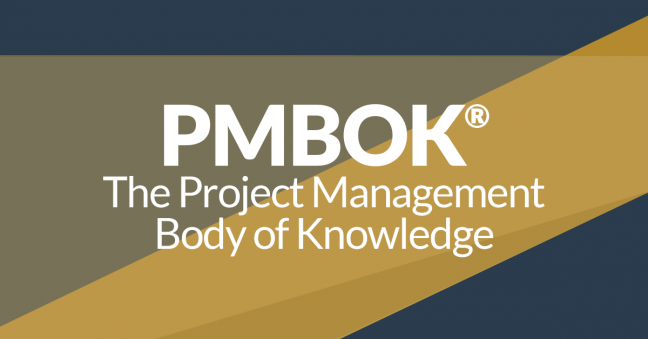
Project Management with PMBOK#
What is Project?#
Without going into the PMBOK definition of a Project let us understand with an extremely simple example. “Go to Chennai and meet a family friend in the city and come back to Delhi by evening flight”. This idea you are discussing with your spouse one month before you need to execute this project. Before this idea convert into a project you need to have support and funding for this. After support, funding, and approval this will turn into a project.
What is PMBOK?#
There are some good standards, guides, frameworks around project management. PMBOK (Project Management Body of Knowledge) is a Guide book from PMI (Project Management Institute). Although it is a highly technical book yet if you read it as a go-getter guy of a project then you will understand the processes, tools, inputs, outputs, skills, etc this book is discussing ubiquitous in nature. The whole book is structured in the form of knowledge areas, process groups, and processes required to manage any project.
What is Project Management?#
Again without going into the technical definition of this term let’s continue our previous example. Going to Chennai has some goals and objectives, define those. It needs money, estimate it. The project needs to be funded, identify from what source you will fund that money? Evaluate the benefits of the goal against the funding and make a go-no-go decision. When you do this project, it will take time to go and come back. For that duration, you will not be available for other work. So prepare a schedule with activity dependency and resource dependency. So managing this whole circus is called project management and it is the responsibility of the project manager.
Keeping this project in mind following questions will help you understanding project management better.
- What are the success criteria of this project?
- What is the budget of this project?
- What will be the duration of this project in hours?
- Do you count the planning period (1 month before execution) as a part of this project?
- What are the deliverables of this project?
- How will you classify the goal of this project as product or service or result?
- Do you think that the difference between your budget and the cost you are about to spend on the project while finalizing all your plans will be zero?
- Do you think that the difference between the cost which you estimated and the cost which you actually spent on the project (counting again when you come back to Delhi) will be zero?
Every Project is Unique#
Even if you have gone 5 times from Delhi to Chennai or you take the help of some friend (expert judgement) who has gone there 5 times you cannot ensure that the project will have zero variances and the same quality as last time!
Variances in Project#
If variances are possible on this kind of small project then what to say about mega infrastructure or research project! If zero variance and the same quality are not possible then why don’t we accept variances as the reality of any project? Our job as a project manager is to deliver a project with some predictive variance limit and predictive quality variance. But how to predict this? For this purpose, PMI has one Body of Knowledge called PMBOK (Project Management Body of Knowledge).
Project Management using PMBOK#
PMBOK helps you get the answers to the following questions in a very systematic way. PMBOK guides you to seek the answer to these questions throughout the project life-cycle and ensure delivery as per plan
- What are the different possible out scope work items of this project?
- What are the possible risks of this project?
- What are services, materials, etc required from vendors on different dates and their payment plan?
- Who are human resources involved in this project who can help you in estimating, planning, executing, monitoring, controlling, closing activities of the project?
- Who are the stakeholders of the project and how to keep them engaged?
- What are the quality expectations of these stakeholders?
- What, how, and when you will communicate with the stakeholders of this project?
- Can you draw all the activities of this project on a time-line while estimating the duration of each activity?
- Can you estimate the cost of every identified activity on time-line
- How much money you would like to keep as a reserve for those kinds of risks which you can predict (like small health issues, change of taxi, change of flight, change of meeting venue, etc)
- How much money you would like to keep as a reserve for those kinds of risks which you can not predict (like a tsunami and stay extended, terrorist attack in Mumbai and all airport flights are stopped till further order, friend to whom you are going to meet meets a major accident on the way and you have to stay with him, etc)
PMBOK 5th Edition has 10 Knowledge areas, 5 Process Groups, 47 Processes, and addresses many questions like above in a very systematic way.
Conclusion#
However, project management is ubiquitous and it looks simple but, when you are entrusted with organizational resources and given a goal with a timeline then it becomes complicated to manage a project. In that situation, it is always good to use some reference guide, manual, organizational project management manual. PMBOK is good for all situations either you are new in a company or an old employee of a company, working as an independent consultant, managing a small project of mega projects.


Comments: